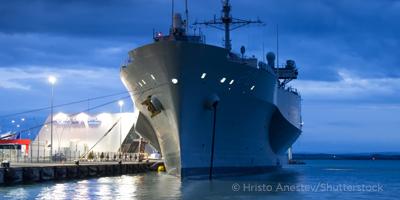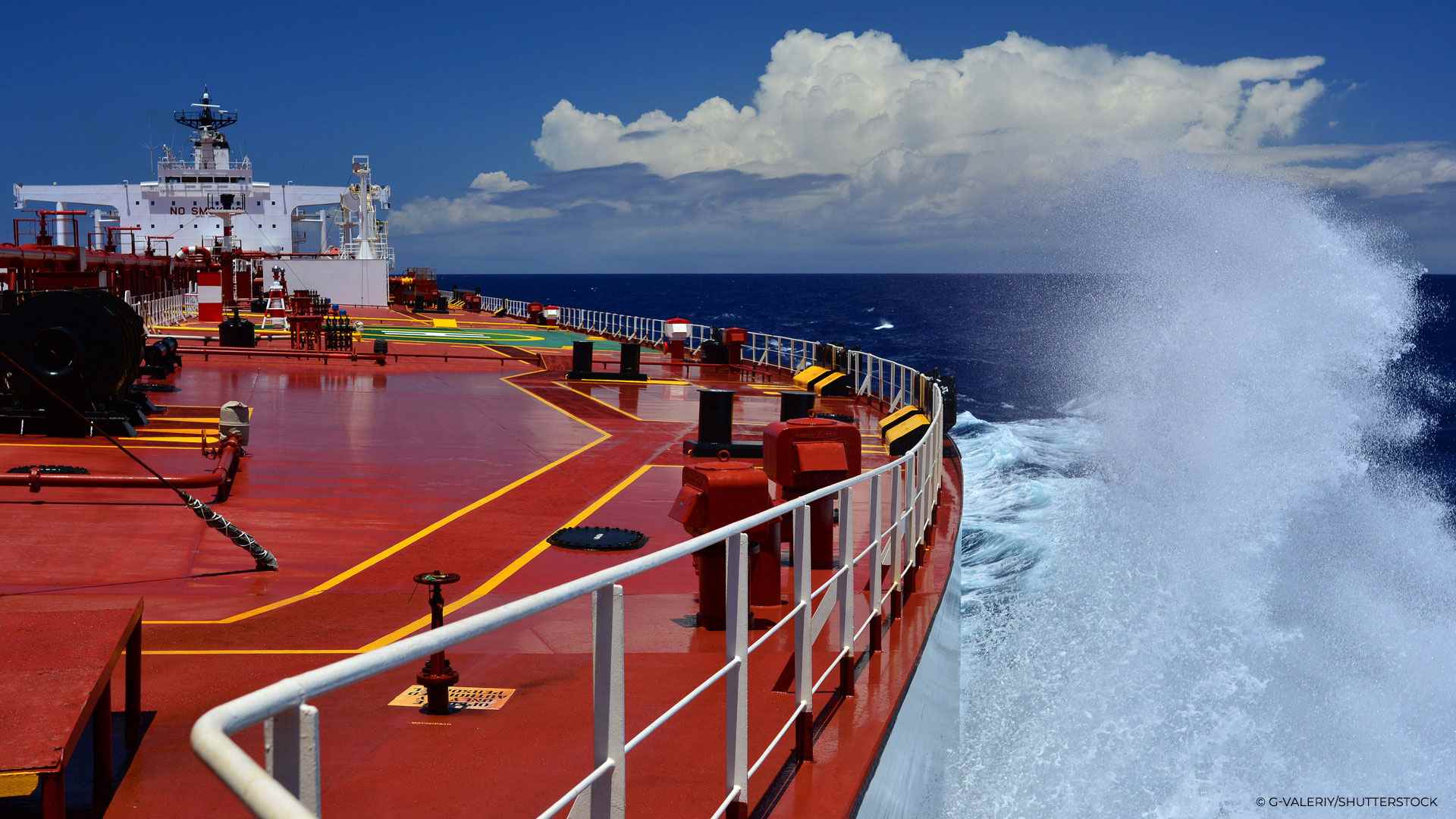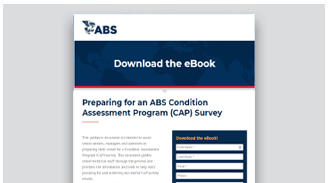Quick Links
Condition Assessment Program (CAP) for Aging Vessels
- What is CAP?
- CAP Program Details
- Why CAP with Fatigue Assessment?
What is CAP?
Cargo owners and many of the largest charterers typically require a Condition Assessment Survey. Charterers prefer a CAP Grade of 1 or 2 to fix older vessels identified to carry their cargo. The commercial opportunities for an older tanker, gas carrier, bulk carrier, and more recently, a containership and an offshore supply vessel without a satisfactory CAP rating, may be limited.
The Condition Assessment Program is a voluntary service that provides an independent evaluation of the condition of a vessel from which third parties can assess the suitability of an asset for a charter based on its current condition as opposed to its age.
The program provides a charterer with a technical evaluation of the physical condition and maintenance of a vessel above the standard requirements for class. CAP is applicable to oil tankers and bulk carriers of 15 years of age and above, but may be used for other vessels at different ages.
The program includes a detailed survey of the vessel's hull structure including verification of gaugings as well as extensive testing of the vessel's machinery, equipment and cargo systems. This information, combined with a strength and fatigue engineering analysis, leads to a numeric rating being assigned to the vessel ranging from 1 (Very Good) to 4 (Unsatisfactory).
Need more info? We're here to help! Have a member of the ABS team contact you.
Condition Assessment Program Details
Assess physical condition and maintenance of vessel above the minimum requirements for class:
- Review of Class Records
- Fatigue Assessment
- Condition Assessment Survey
- Verification of Gaugings
- Structural Evaluation
- CAP Report and Grade
Why CAP with Fatigue Assessment?
CAP is able to quickly and cost-effectively assess the cumulative impact of fatigue on a vessel's critical structural components. The major charterers have introduced even tougher CAP standards as a requirement for charter. They demand that the CAP 1 or 2 ratings include a detailed fatigue assessment.
What is CAP?
Cargo owners and many of the largest charterers typically require a Condition Assessment Survey. Charterers prefer a CAP Grade of 1 or 2 to fix older vessels identified to carry their cargo. The commercial opportunities for an older tanker, gas carrier, bulk carrier, and more recently, a containership and an offshore supply vessel without a satisfactory CAP rating, may be limited.
The Condition Assessment Program is a voluntary service that provides an independent evaluation of the condition of a vessel from which third parties can assess the suitability of an asset for a charter based on its current condition as opposed to its age.
The program provides a charterer with a technical evaluation of the physical condition and maintenance of a vessel above the standard requirements for class. CAP is applicable to oil tankers and bulk carriers of 15 years of age and above, but may be used for other vessels at different ages.
The program includes a detailed survey of the vessel's hull structure including verification of gaugings as well as extensive testing of the vessel's machinery, equipment and cargo systems. This information, combined with a strength and fatigue engineering analysis, leads to a numeric rating being assigned to the vessel ranging from 1 (Very Good) to 4 (Unsatisfactory).
Need more info? We're here to help! Have a member of the ABS team contact you.
Condition Assessment Program Details
Assess physical condition and maintenance of vessel above the minimum requirements for class:
- Review of Class Records
- Fatigue Assessment
- Condition Assessment Survey
- Verification of Gaugings
- Structural Evaluation
- CAP Report and Grade
Why CAP with Fatigue Assessment?
CAP is able to quickly and cost-effectively assess the cumulative impact of fatigue on a vessel's critical structural components. The major charterers have introduced even tougher CAP standards as a requirement for charter. They demand that the CAP 1 or 2 ratings include a detailed fatigue assessment.
Benefits of ABS CAP
Demonstrates maintenance and suitability for intended vessel charterers and contracts
Helps to demonstrate vessels are well maintained
Identifies areas for improvement to better prioritize maintenance and reduce the risk of unplanned downtime
Provides recommendations for enhancement of critical areas above class to meet charterers expectations and expand fatigue life












































